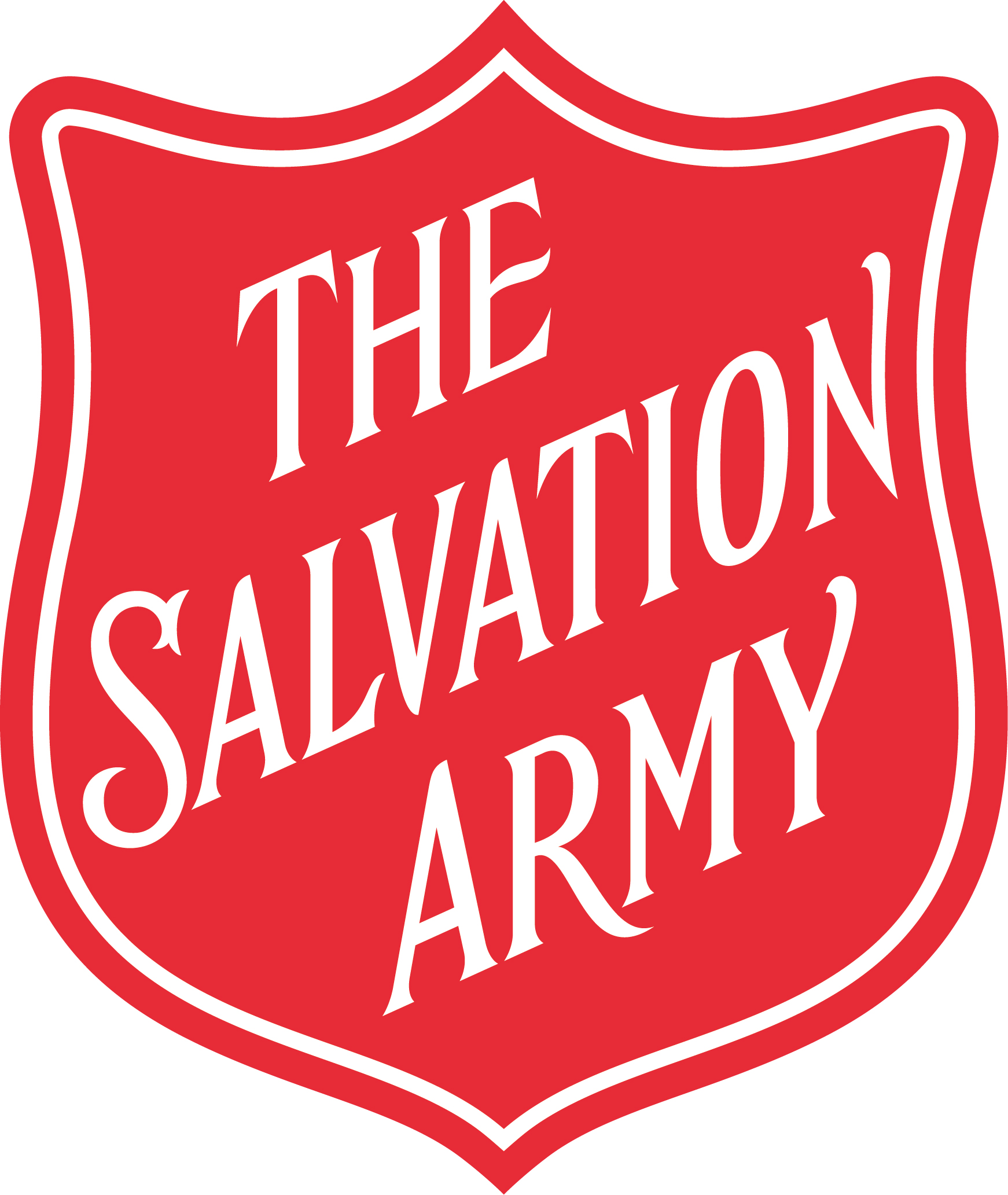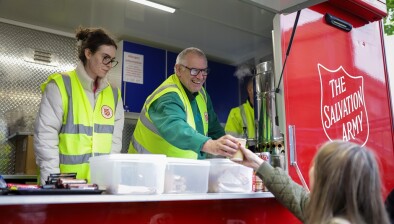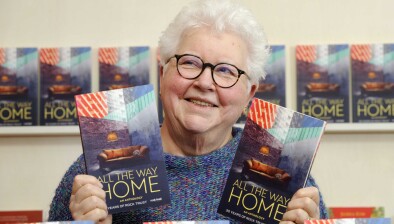Charity Spotlight: Innovative menopause service for women who are homeless or living with addiction

The Salvation Army is pioneering Menopause Awareness sessions aimed at women experiencing homelessness or living with addiction, warning ahead of World Menopause Day (Sat 18 October) that this group of women are often not receiving the level of care they deserve.
Reproductive health is recognised as a priority public health issue by the Scottish Government, including support for menopause and menstrual health. However, women living with addiction or experiencing rough sleeping and other forms of homelessness are missing out on support, according to a leading academic.
The Salvation Army is working in partnership with Dr April Shaw, formerly of SACASR (Salvation Army Centre for Addictions Services Research) at the University of Stirling, and currently at the University of the West of Scotland, on an innovative programme to raise awareness of the menopause among women living with addiction or in recovery, the workers who support them and healthcare professionals.
Dr Shaw said: “In Scotland, almost half of people assessed as homeless or threatened with homelessness are women. Of those attending substance use services for opioids 40 per cent are female plus we know hazardous or harmful drinking is most prevalent among women between 35 and 64 years.
“Despite this we know very little about the health care needs and preferences of older women who experience challenges related to substance use and homelessness, particularly around issues related to the menopause transition.
“More groups like the TSA ‘Let’s Talk Menopause’ sessions would give women space to discuss their symptoms and feelings during what can be for some a challenging time. However, we also need to know more about women’s experiences to design services that allow equal access for all women to menopause support and treatment.”
The average age for a woman to begin menopause is 51, and symptoms can last for up to 12 years. For perimenopausal symptoms, which precede menopause, it is 47. Both stages might result in difficulty sleeping, palpitations, hot flushes, headaches and a host of other serious impacts over long periods of time.
Sandra Campbell, area operations manager (Scotland) with The Salvation Army’s Homelessness Services team, runs the Menopause Awareness Sessions with Dr Shaw.
“Symptoms associated with substance use, withdrawal or anxiety connected to homelessness mirror common symptoms of the menopause, masking many of the signs that could trigger a health appointment,” Sandra said. “Being homeless makes it almost impossible to work or study and to maintain healthy relationships and that includes access to routine healthcare.”
She added: “Menopause and perimenopause symptoms can have a huge impact on daily life including on relationships, wellbeing and physical health. For many of the 1,300 women we support in our services annually who are homeless and may be living with addiction it can be confusing and even more distressing.
“An added complication is that more than 30 per cent of those who arrive at The Salvation Army’s homelessness services are not registered with a GP, which can be another reason why women do not receive the support they need. That is why we began delivering the awareness sessions, which have been very popular.”
During the pandemic, a workshop on the menopause for frontline staff at The Salvation Army developed into online sessions. Around the same time, Dr Shaw was conducting research also with frontline staff supporting women who were homeless and accommodated by the church and charity. Working in partnership, in-person sessions have been developed specifically for older women who are homeless or living with addiction, so far delivered to 100 women in recovery.
Sandra Campbell added: “I hope our Menopause Awareness Sessions will be more widely available in the future and provide women with the knowledge and confidence to demand equal access to the support they deserve at a tough stage in lives already loaded with additional challenges.”
For health information visit www.nhs.uk/conditions/menopause. If you or someone you know are experiencing menopause or perimenopause symptoms more information is available at www.menopauseinfo.org.
The Scottish Housing News Charity Spotlight feature highlights the vital work of charities across Scotland each Friday. To include your local charity, whether housing-related or not, send your story and images to us at newsdesk@scottishnews.com.






